The person who writes plays?
What is a playwright?
The practice before a production opens in front of an audience.
What is rehearsal?
An acting technique that uses no words, sounds or objects to tell a story.
What is Pantomime?
The area of the stage located at #9.
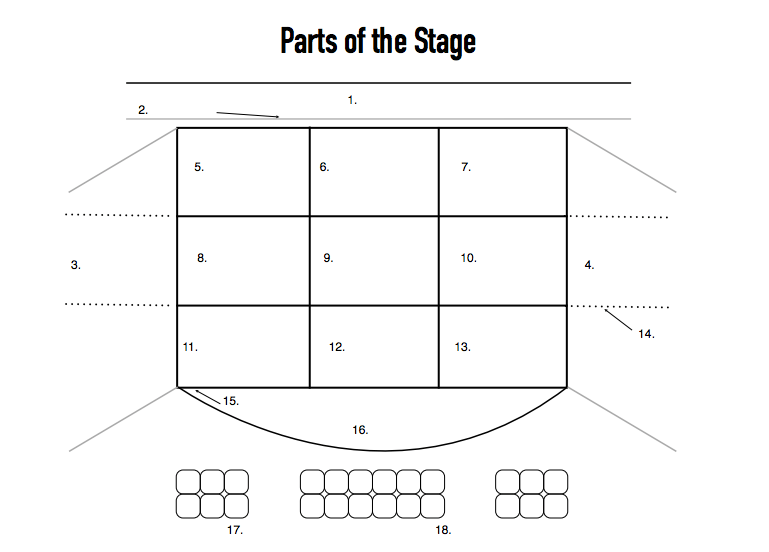
What is Center Stage?
Something that an actor wears during a performance.
What is a Costume?
The Actor's Tools.
What are body, voice, imagination, and focus.
The relative highness or lowness of a tone as perceived by the ear.
Pitch
The colors in this element are important to the script and the character.
Sound
Rehearsals emphasizing the performance of the production’s technical elements– prop changes, scenery shifts, light changes, sound effects, etc.
Technical Rehearsal
A conversation where 2 or more people are talking.
What is Dialogue?
The tension between two or more characters or between action and ideas
What is Conflict?
The where and when of the play or story?
What is the Setting?
The area of the stage located at #3 and #4.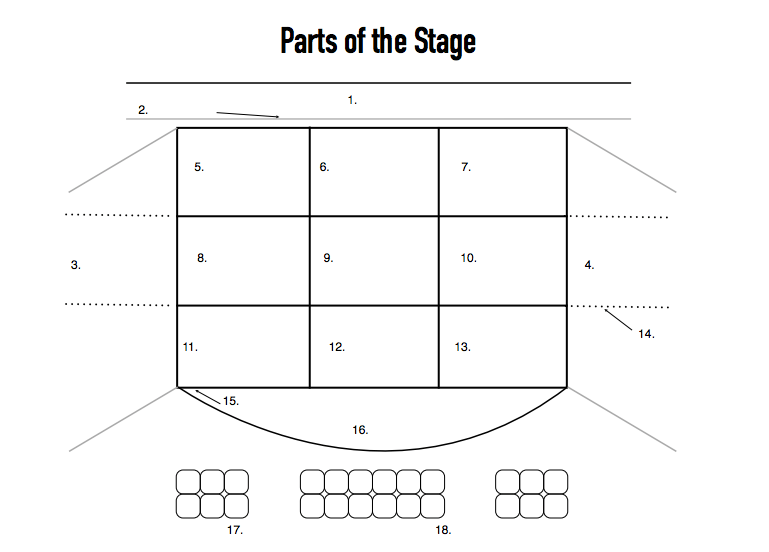
What are the wings?
These are the actor's tools.
What are Voice, Body, Imagination, and Focus?
Theatre is...
What is acting, singing and dancing.
Refers to the ups and downs in language.
Inflection
These are objects the character brings on stage to use.
Props
Committee of technicians who work behind the scenes creating the scenery, props, and so on.
Crew
A spontaneous style of theatre using unrehearsed and unscripted acting scenes.
What is Improvisation?
An uninterrupted speech of some length delivered by one character.
What is a monologue?
A small bit of action (ex. bouncing a ball, writing a letter) on stage.
What is stage business?
The area located at #17 and #18.
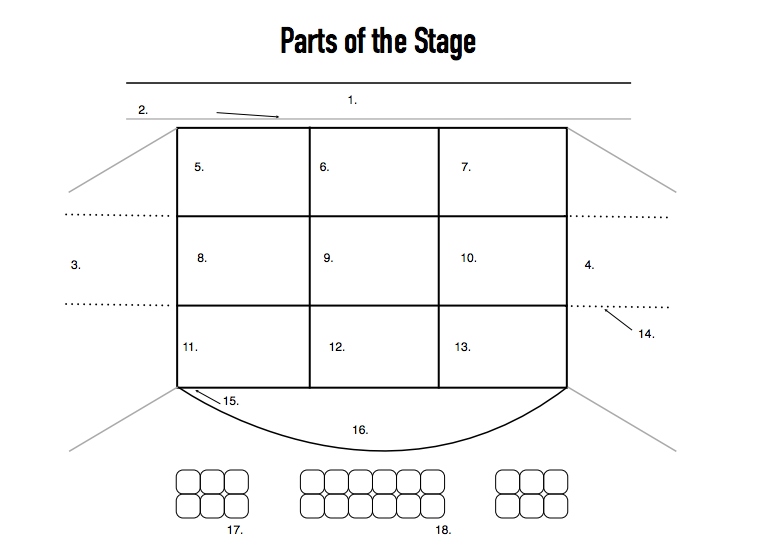
What is the House?
These usually indicate a change of setting or time in a play.
What are scenes?
A character can...
What is think, feel, move, and change.
The strength of speaking or singing whereby the human voice is used powerfully and clearly.
Projection
This element is based on the director's vision.
Set
A term for the movement and positioning of actors on a stage.
Blocking
He was the first actor.
Who is Thespis?
The end/conclusion of a story or play?
What is the resolution?
The character that stands in the way of the main character getting what they want.
What is the Antagonist?
The area of the stage located at #5.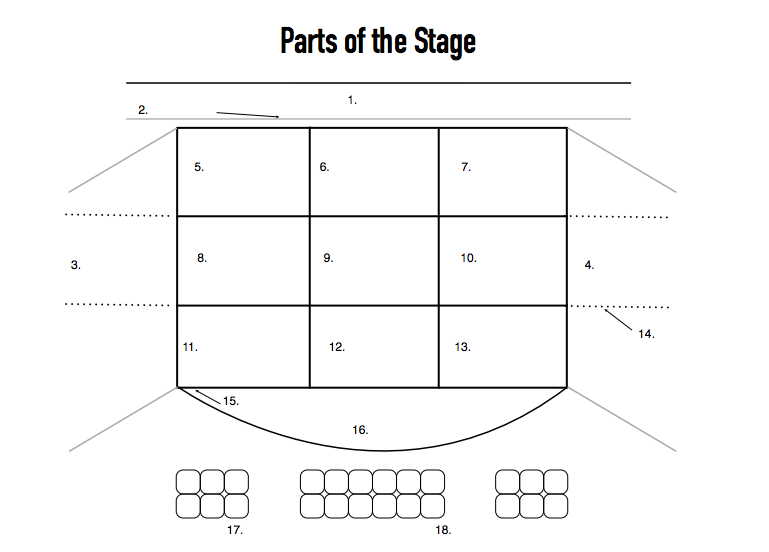
What is upstage right?
These two things are found out at the beginning of the play.
What are the characters and the setting?
A male film performer.
What is an actor?
The degree of loudness or softness of your voice when communicating.
Volume
This element sets the tone and mood of the production.
Lighting
The dialogue, sounds, movement, or business signaling an actor or a technician to respond as rehearsed.
Cue
Theatre began in this country.
What is Ancient Greece?
Plays are divided into these main parts.
What are Acts?
The pattern of movement that actors do on stage.
What is blocking?
The area of the stage located at #13.
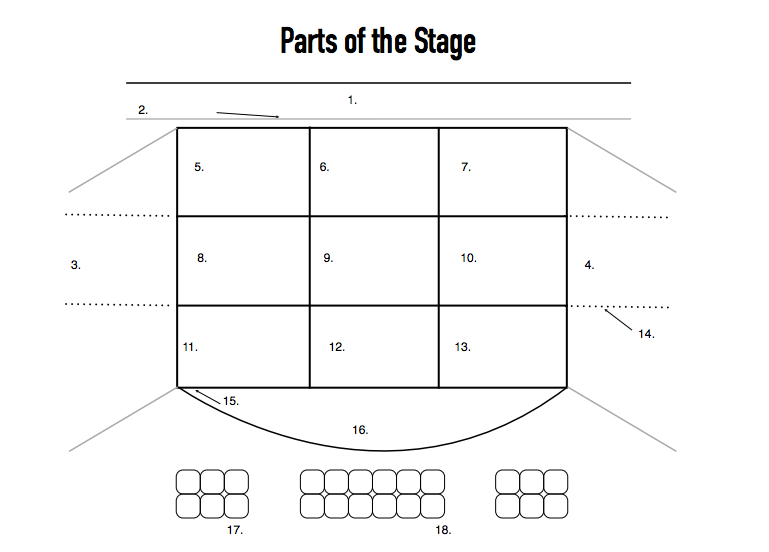
What is downstage left?
These two things are found out in the middle of the play.
What is what the characters are doing and the conflict?
The living things (human and animal), and objects that act like people in a play.
What are the characters?
Refers to speaking clearly and understandably pronouncing each word.
Articulation
This element is the glue that holds all the other elements together.
Sound
A person who creates or plans a specific part of the production, such as the costumes, lighting, set, make-up, or sound.
Designer